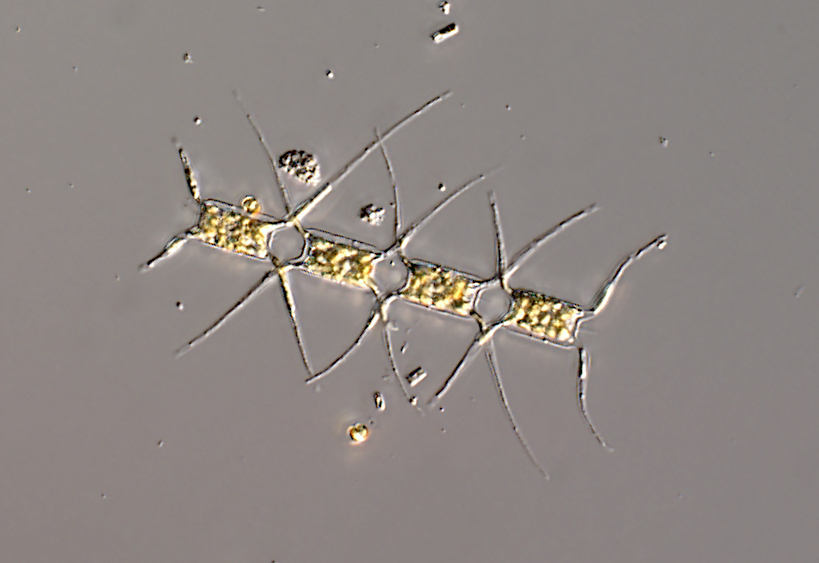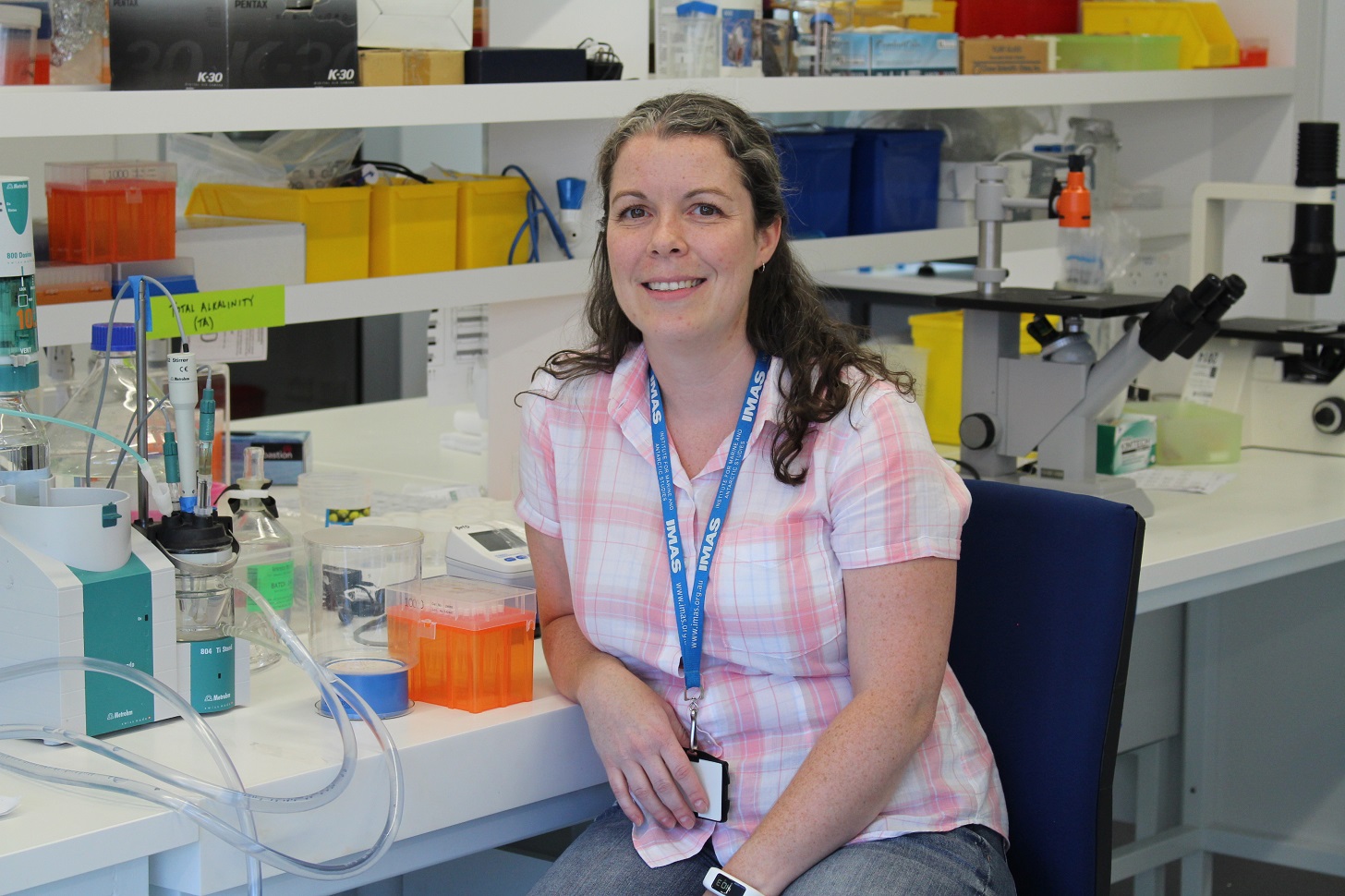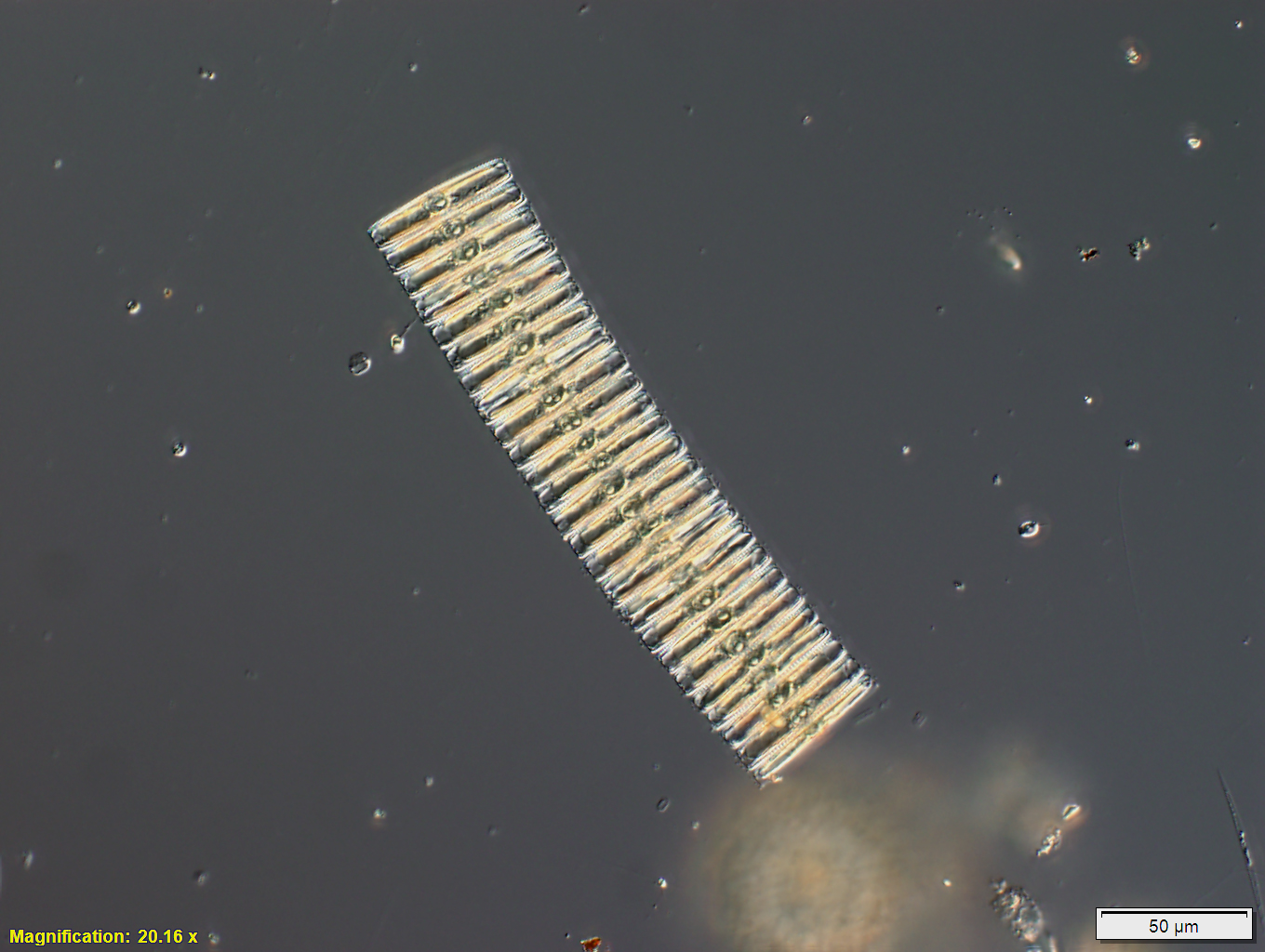
A new review of scientific research into the impact of climate change on Southern Ocean phytoplankton has revealed uncertainty about the future of the single-celled plants at the base of the ocean food chain, which play a key role in reducing atmospheric carbon.
A range of climate-induced stressors, from warming seas and increased ocean acidification to reductions in salinity and sea ice, is expected to alter phytoplankton communities across the Southern Ocean.
But a review of the latest scientific research, by IMAS PhD student Stacy Deppeler in collaboration with the Australian Antarctic Division and ACE CRC, has revealed that a clear trend of how Southern Ocean phytoplankton are affected is not expected to become apparent until mid-century, by which time the changes may be too far progressed to mitigate or reverse.
 “While a fundamental part of the ecosystem is changing in ways that could have global implications, there’s uncertainty about exactly what the changes and their impact will be,” Ms Deppeler said.
“While a fundamental part of the ecosystem is changing in ways that could have global implications, there’s uncertainty about exactly what the changes and their impact will be,” Ms Deppeler said.
“It’s unlikely that we’ll be able to identify clear trends until around 2050, by which time some big changes in phytoplankton communities will probably already have occurred and it will to be too late to consider mitigating them.
“Phytoplankton are important because all marine life in the Southern Ocean rely on them ultimately as a food source.
“They also draw down carbon as they photosynthesise, and capture it in the deep ocean when they sink to the seafloor. The level of atmospheric carbon would be around 50 per cent higher without the uptake provided by Southern Ocean phytoplankton.
“Changes to phytoplankton communities therefore could have significant implications for our environment and climate.”
“The research shows there appears to be a trend towards smaller celled phytoplankton, which can affect their nutritional value for predators and the amount of carbon captured by the carbon pump.
“Changes in the ability of phytoplankton to photosynthesise and grow, or changes in the structure of the phytoplankton community from large cells that contain a lot of carbon to smaller cells that don’t have so much, will affect the amount of carbon that sinks into the deep ocean.
(Phytoplankton photos: Alyce Hancock)
“But understanding exactly what’s happening is difficult due to the complexity of the stressors affecting phytoplankton, the size and regional diversity of the Southern Ocean, and the logistical challenges of conducting research there.
“While the changes in phytoplankton might happen quite quickly they’ll take a very long time to reverse.
“Although it’s currently unknown whether the rate of environmental change will outpace the ability of Southern Ocean phytoplankton to adapt, it is inevitable that changes in the Southern Ocean will influence the food chain there, the ocean biogeochemistry, and feedback on climate,” Ms Deppeler said.
The full research paper is available here.